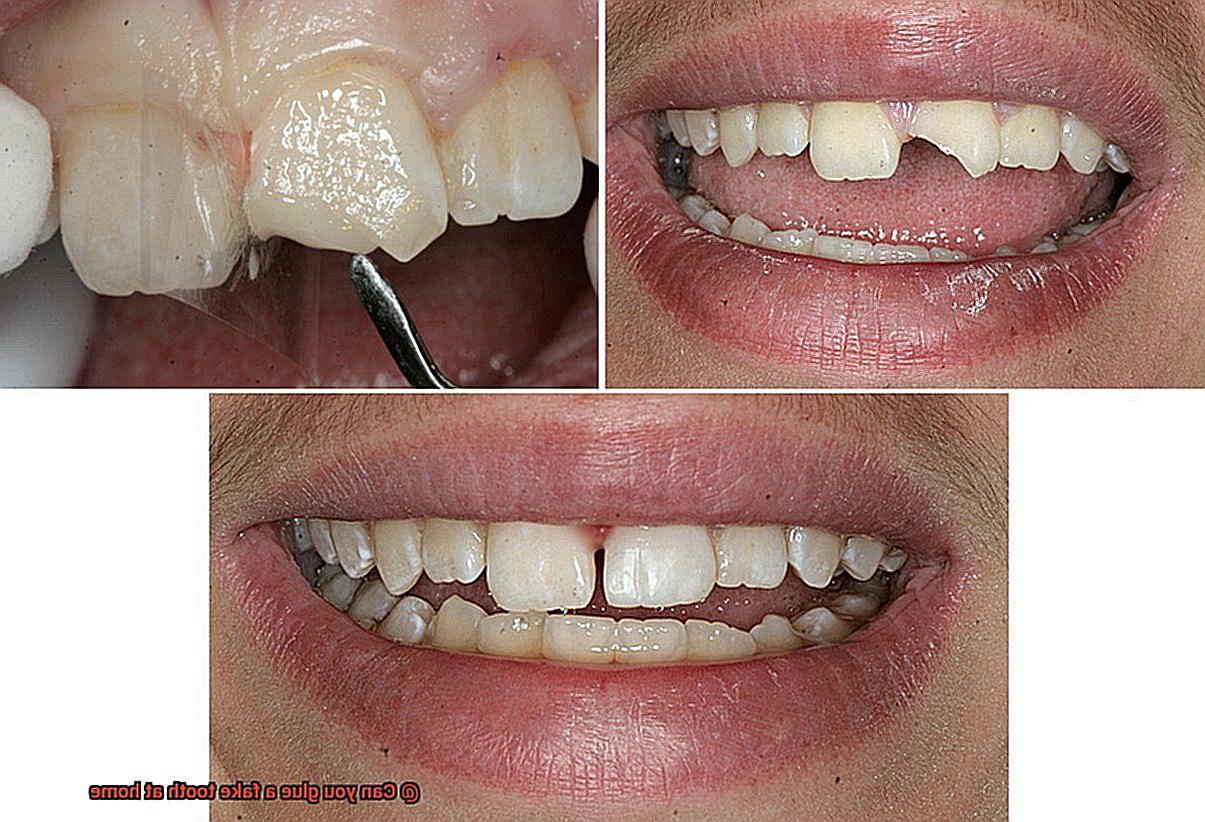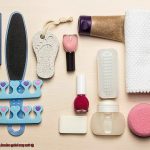Have you ever been in a situation where you lost a tooth and wished you could just stick a fake one in its place? Maybe you were munching on some hard candy or playing your favorite sport when suddenly a tooth chipped, leaving you feeling self-conscious about your smile. Whatever the case may be, the question on everyone’s lips is, can you glue a fake tooth at home?
Well, the short answer is yes, but before you dash off to grab that tube of superglue, there are a few things to consider. While gluing on a fake tooth may seem like an easy fix, it’s essential to prepare properly and have some expertise to avoid causing further damage to your teeth and gums.
In this blog post, we’ll take a deep dive into the world of fake teeth and walk through the process of gluing them in place. We’ll discuss the different types of fake teeth available and help determine when gluing might be an appropriate option. Furthermore, we’ll go over the recommended methods for attaching your new pearly white and explain any potential risks or side effects that come with doing it yourself.
So whether you’re looking to repair a chipped tooth or merely curious about your options, keep reading to learn more about how to glue on a fake tooth at home.
What is Glueing a Fake Tooth?
Contents
- 1 What is Glueing a Fake Tooth?
- 2 What Are the Risks of Glueing a Fake Tooth at Home?
- 3 What Are the Limitations of Glueing a Fake Tooth at Home?
- 4 How to Prepare for Glueing a Fake Tooth at Home?
- 5 Different Types of Dental Adhesives Available on the Market
- 6 DIY Approaches for Glueing a Fake Tooth at Home
- 7 The Benefits of Seeking Professional Guidance When Glueing a Fake Tooth
- 8 Ignoring Underlying Dental Issues Can Lead to Further Complications
- 9 Conclusion
While it may seem like a quick and easy solution, this DIY approach can lead to potential risks and complications that could harm your oral health.
There are various types of dental adhesives available on the market, including temporary and permanent options. However, using them improperly or applying them to the wrong area can lead to further damage or infection. This is why seeking professional dental care is crucial when considering gluing a fake tooth.
Dentists have the expertise and experience needed to ensure the prosthetic tooth is properly placed and secured without causing harm or risk of infection. They can provide you with alternatives such as dental implants or bridges, which offer a more permanent and effective solution for missing or damaged teeth.
If you still choose to attempt gluing a fake tooth at home, it is essential to use the correct type of adhesive and apply it with care. Temporary adhesives are usually used for short-term fixes and can be removed easily. Permanent adhesives, on the other hand, are designed to hold the prosthetic tooth in place for an extended period. However, even with the correct adhesive, incorrect placement or pressure can cause further damage or infection.
It’s important to note that a poorly fitted tooth may result from a DIY approach that does not match the surrounding teeth in size, shape, or color. This can lead to discomfort when eating or speaking and may negatively impact your self-confidence. Seeking guidance from a dental professional can provide you with a more durable, natural-looking solution that addresses any underlying issues and ensures your continued oral health.
What Are the Risks of Glueing a Fake Tooth at Home?
It might seem like an easy and cost-effective option, but there are significant risks involved that you should know about. As an expert in the field of dentistry, I highly advise against attempting this procedure on your own.
One of the biggest risks of gluing a fake tooth at home is the potential damage to your underlying tooth structure. Applying the adhesive improperly can cause harm to surrounding teeth and gums, leading to further oral health complications. Not only that, a poorly fitted fake tooth can cause bite issues, which can result in additional harm to your teeth and jaw.
Another significant risk is the potential toxicity of the glue itself. Many types of glue have harmful chemicals that can be dangerous if ingested or absorbed through the skin. In some cases, these chemicals can even lead to serious health complications.
Furthermore, DIY attempts at gluing a fake tooth may result in an unnatural-looking outcome that can impact your self-confidence and overall quality of life. Dental professionals use high-quality materials and exact measurements to create prosthetics that fit naturally and comfortably. In contrast, a DIY approach may result in an unattractive appearance that makes you feel self-conscious about your smile.
In summary, the risks of attempting to glue a fake tooth at home far outweigh any potential benefits. Seeking professional advice from a dental expert is always the best course of action when considering any type of dental procedure or treatment. Don’t let the allure of a quick fix jeopardize your oral health or well-being. Trust in the professionals who have the knowledge and expertise to help you achieve a healthy, confident smile.
What Are the Limitations of Glueing a Fake Tooth at Home?
While it may seem like a convenient solution, it’s essential to understand the limitations and potential risks involved.
First and foremost, it’s important to note that dental adhesive is not a permanent solution. It’s designed to be a temporary fix until you can see a dentist for a more permanent solution. Using dental adhesive as a long-term solution can cause additional problems in the future.
One of the limitations of gluing a fake tooth at home is the risk of infection. If the tooth is not adequately cleaned before applying the adhesive, bacteria can build up and lead to an infection. Moreover, if the adhesive is not applied correctly, it can cause irritation and inflammation of the gums.
Another limitation is that gluing a fake tooth at home requires a certain level of skill and expertise. If the adhesive is not applied correctly or if the tooth is not aligned properly, it can cause discomfort and even pain. In some cases, it may even damage the surrounding teeth or gums.
It’s important to consider the type of adhesive being used as well. Over-the-counter adhesives may contain harmful chemicals that can cause damage to the teeth and gums over time. It’s best to use an adhesive specifically designed for dental use and approved by the FDA.
How to Prepare for Glueing a Fake Tooth at Home?
While this may seem like an easy fix, it’s crucial to prepare properly to avoid any potential issues. Here are five steps to help you prepare for gluing a fake tooth at home.
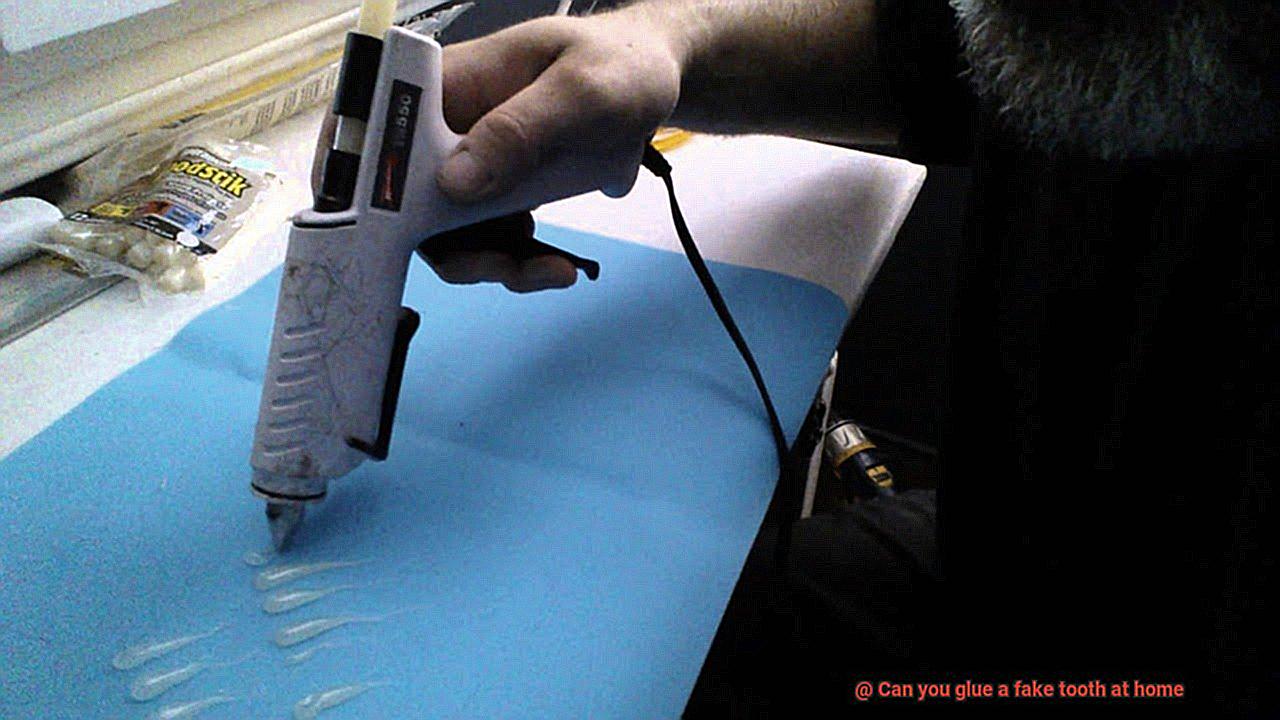
Gather Your Materials
Before beginning the process, make sure you have all the necessary materials on hand. You’ll need dental adhesive, a mirror, dental floss, a small flashlight or mirror, and a clean towel.
Assess the Condition of Your Teeth and Gums
Check the condition of your surrounding teeth and gums to ensure they are healthy. If there are any signs of infection or decay, it’s critical to treat those issues first before attempting to glue a fake tooth at home. Additionally, clean the area around the missing tooth thoroughly with a toothbrush and dental floss.
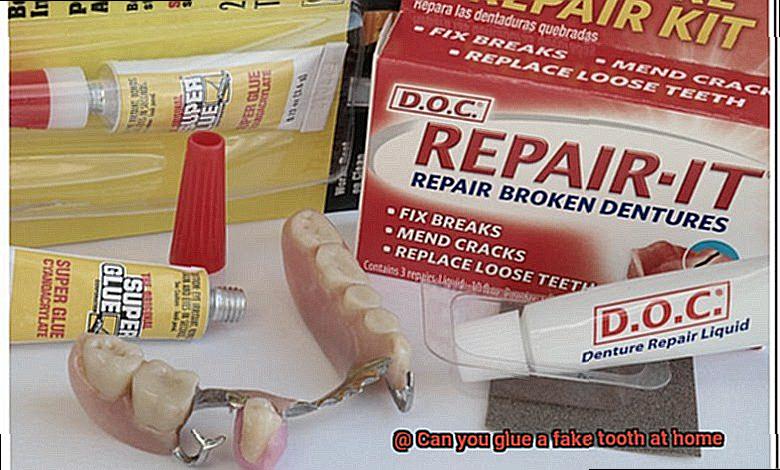
Ensure the Fake Tooth Fits Properly
Make sure the fake tooth fits comfortably in your mouth. Adjust it as needed and practice inserting and removing it before applying any glue. Also, practice speaking and eating with the fake tooth to ensure it feels natural.
Clean the Area Thoroughly
Before gluing the fake tooth in place, clean the area again with an antiseptic mouthwash to kill any bacteria present. Dry the area gently with a clean towel, ensuring there is no moisture left behind.
Apply the Glue Carefully
Read the instructions on the dental adhesive packaging carefully and follow them precisely. Apply a small amount of glue to the back of the fake tooth, being careful not to apply too much. Quickly but carefully position the tooth in place and hold it firmly for several minutes until the glue sets.
Different Types of Dental Adhesives Available on the Market
When it comes to securing dental restorations in place, dental adhesives can provide an effective solution. However, with so many types of dental adhesives available on the market, choosing the right one can be a daunting task. In this article, we will explore the different types of dental adhesives and their benefits.
Cream or Paste Adhesive
One of the most common types of dental adhesives is cream or paste adhesive. This type of adhesive comes in a tube and is directly applied to the restoration before it is placed in the mouth. Cream or paste adhesive usually has a mild flavor and can provide a strong hold for up to 12 hours. This type of adhesive is easy to use and does not require any mixing, making it a popular choice for those who value convenience.
Powder Adhesive
Powder adhesive is another type of dental adhesive that is mixed with water to create a thick paste that is applied to the restoration before it is placed in the mouth. While powder adhesive can provide a stronger hold than cream or paste adhesive, it can also be messier. This type of adhesive is often preferred by those who need a stronger hold or have larger restorations.
Adhesive Pads
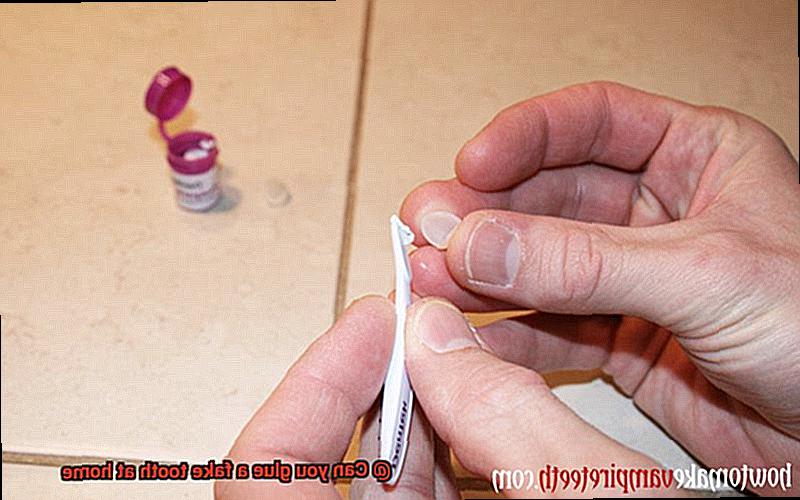
Adhesive pads are pre-cut pads that are placed on the restoration before it is placed in the mouth. Adhesive pads are easy to use and can provide a strong hold for up to 12 hours. They are often preferred by those who do not want to deal with messy powders or pastes.
Adhesive Strips
Adhesive strips are another easy-to-use option for securing dental restorations in place. These strips are applied directly to the restoration and can provide a strong hold for up to 12 hours. They are often preferred by those who do not want to deal with mixing powders or pastes.
Composite Resin Cement
Composite resin cement is a type of dental adhesive that is often used by dentists for bonding crowns, bridges, and other dental restorations to natural teeth. This type of adhesive is generally stronger and more durable than traditional denture adhesive, making it a good choice for those looking for a more long-term solution. It is applied directly to the tooth and restoration and then cured using a special light.
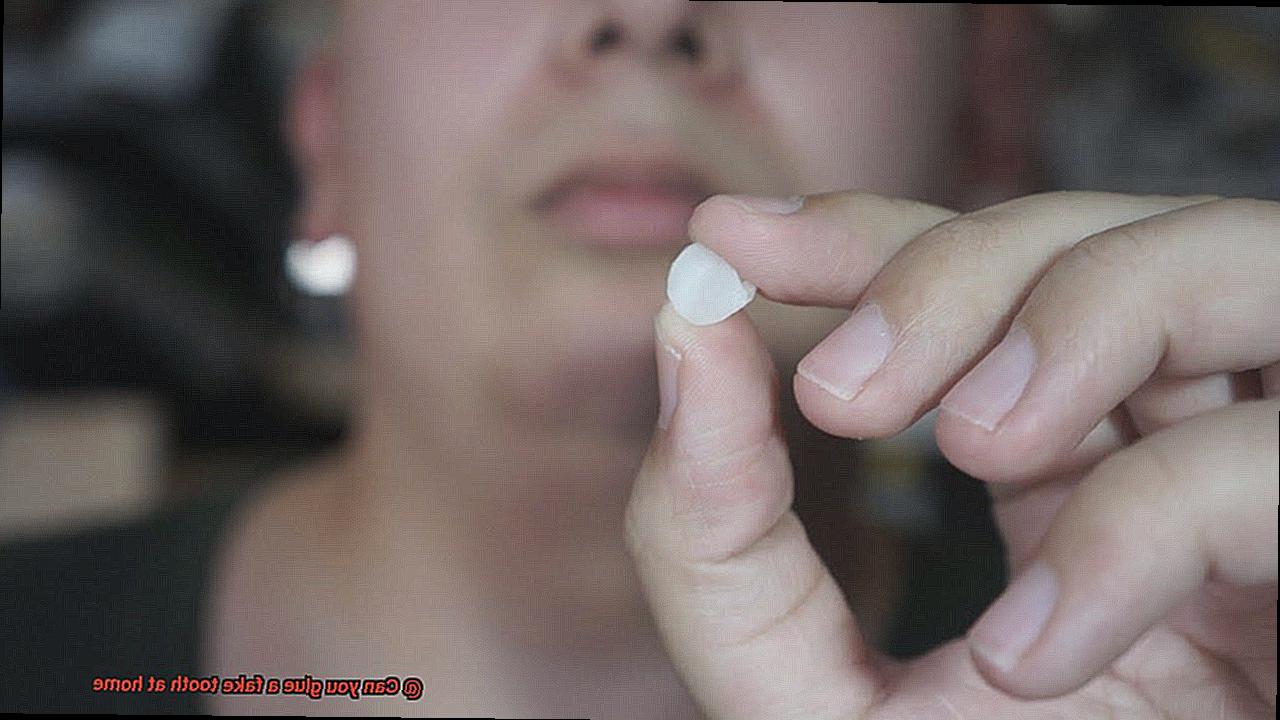
Natural Adhesives
For those who prefer a more natural approach, there are also several types of dental adhesives available that are made from natural ingredients such as beeswax or gum arabic.
While these adhesives may be less sticky than traditional denture adhesive or composite resin cement, they can still provide adequate hold for a fake tooth. They are often preferred by those who want to avoid synthetic chemicals.
DIY Approaches for Glueing a Fake Tooth at Home
When it comes to missing teeth, DIY solutions may seem like a cheap and convenient option, but the risks involved in gluing a fake tooth at home are not worth it. Dental professionals do not recommend this approach for several reasons.
One popular DIY method involves using household adhesives like superglue. However, these adhesives contain toxic chemicals that can cause severe irritation and damage to your gums and surrounding tissues. Additionally, using these adhesives in your mouth can lead to serious complications, including infection and damage to your natural teeth.
Another DIY approach involves using dental repair kits available in drugstores or online. These kits contain dental cement that can be mixed with water and applied to the fake tooth. However, these products are not intended for permanent use, and their strength and durability cannot compare to those used in dental offices.
Attempting to glue a fake tooth at home can also cause more harm than good. You risk damaging your natural teeth or causing an infection by not addressing the root cause of the problem. It’s always best to seek professional dental care when dealing with any type of dental issue.
Instead of taking matters into your own hands, consider visiting a dentist who can assess your situation and provide safe and effective solutions tailored to your specific needs. Prevention is key, so make sure you practice good oral hygiene habits and visit your dentist regularly for check-ups and cleanings.
The Benefits of Seeking Professional Guidance When Glueing a Fake Tooth
While gluing in a fake tooth at home may seem like a quick and cost-effective fix, it’s important to consider the potential risks involved. That’s why seeking professional guidance when gluing a fake tooth is so crucial.
Here are some of the top benefits of seeking professional guidance:
- Safe and Effective Glue: With a plethora of dental adhesives available on the market, it can be challenging to know which one to choose. However, a dental professional has the expertise needed to recommend the best adhesive for your specific needs, ensuring that it is both safe and effective.
- Proper Alignment and Fitting: A poorly aligned or fitted fake tooth can cause discomfort or even damage to adjacent teeth or gums, not to mention looking unnatural. Seeking professional guidance will ensure that your fake tooth is properly aligned and fits comfortably in your mouth, giving you a natural-looking smile.
- Avoid Complications: Attempting to glue in a fake tooth at home can lead to serious problems such as infection, nerve damage, or further damage to surrounding teeth and gums. By working with a qualified dental professional, you can avoid these potential complications and enjoy a safe, effective solution for your missing or damaged tooth.
- Personalized Treatment: Every individual’s dental needs are unique. A dental professional will be able to assess your specific situation and provide personalized treatment options tailored to your needs, ensuring that you receive the best possible care.
Ignoring Underlying Dental Issues Can Lead to Further Complications
We’ve all experienced the frustration of a missing tooth, but attempting a quick fix at home can lead to disastrous consequences. It’s crucial to address any underlying dental issues before resorting to DIY solutions, as ignoring them can have serious and costly implications.
One of the most significant complications that can arise from ignoring underlying dental issues is infection. If there are existing cavities or infections in the tooth or surrounding area, gluing a fake tooth onto it can trap bacteria and worsen the issue. This can lead to excruciating pain, discomfort, and even pose health risks.
However, infection isn’t the only concern. Ignoring dental problems can also result in severe damage to the surrounding teeth and gums. This is especially true if there are alignment issues or gum disease present. Gluing a fake tooth onto the affected area could put undue pressure on neighboring teeth and gums, causing further damage and possibly leading to tooth loss.
Moreover, it’s critical not to overlook the importance of proper fitting. Neglecting underlying dental issues can lead to an ill-fitting fake tooth that causes discomfort, difficulty chewing, and speaking. Such issues could significantly impact our quality of life and make everyday activities challenging.
To avoid these complications, it’s essential to address any underlying dental issues before attempting a DIY solution. Consulting with a dental professional can help ensure that any problems are appropriately addressed, and a safe and effective solution is implemented. Don’t let quick fixes lead to long-term complications – prioritize your dental health today.
vOMqQUV9jMU” >
Conclusion
In conclusion, while the idea of gluing a fake tooth at home may seem tempting, it’s important to consider the significant risks and limitations involved. The dental adhesives available on the market can be tricky to use correctly, and misapplication can lead to further damage or infection. Seeking professional dental care is crucial when considering gluing a fake tooth.
Attempting to glue in a fake tooth at home can have disastrous consequences. Toxicity from the glue itself, damage to underlying tooth structure, and an unnatural appearance can all impact your self-confidence and overall quality of life. Dental professionals use high-quality materials and exact measurements to create prosthetics that fit naturally and comfortably.
Proper preparation is essential before attempting to glue in a fake tooth at home. This includes gathering all necessary materials, assessing your teeth and gums’ condition, ensuring proper fitting, cleaning the area thoroughly, and applying the glue carefully.
Seeking professional guidance offers several benefits such as safe and effective glue, proper alignment and fitting, avoiding complications, and personalized treatment tailored to your specific needs. Ignoring underlying dental issues can lead to further complications such as infection or severe damage to surrounding teeth and gums.
In summary, prioritize your dental health by seeking professional guidance instead of quick fixes that may cause long-term complications.

